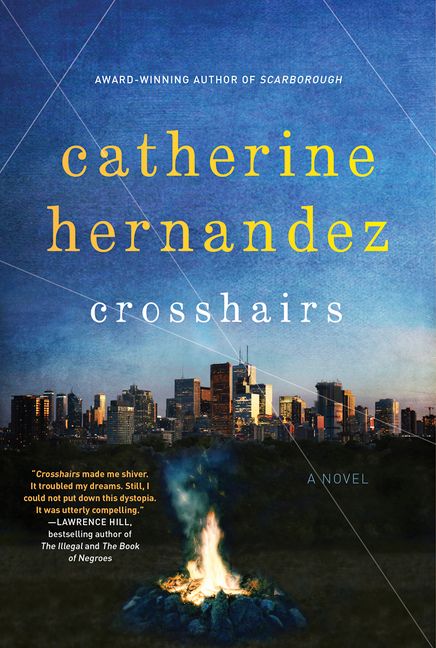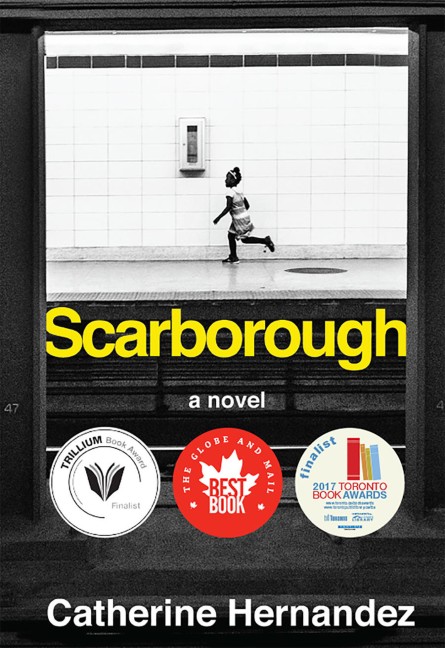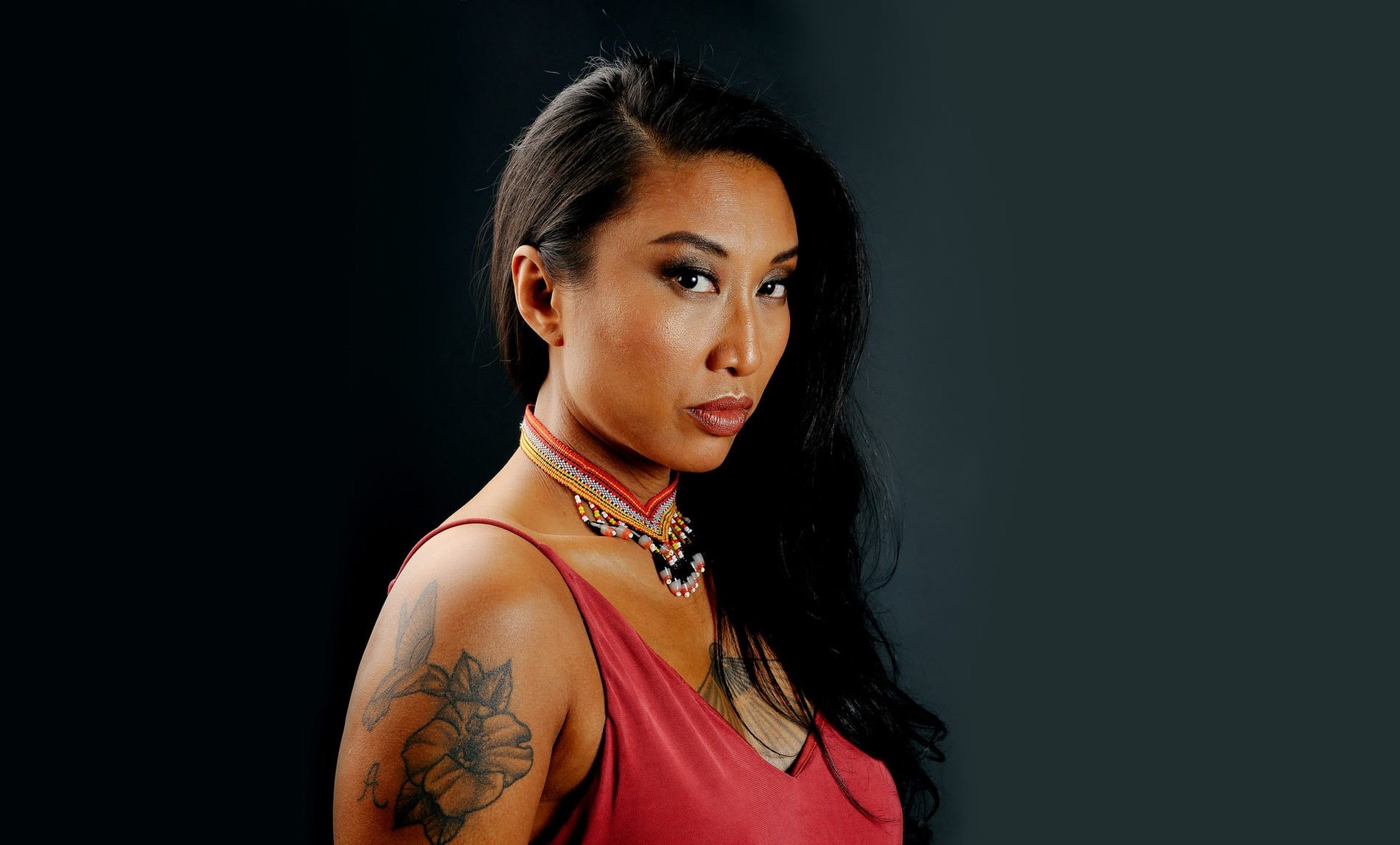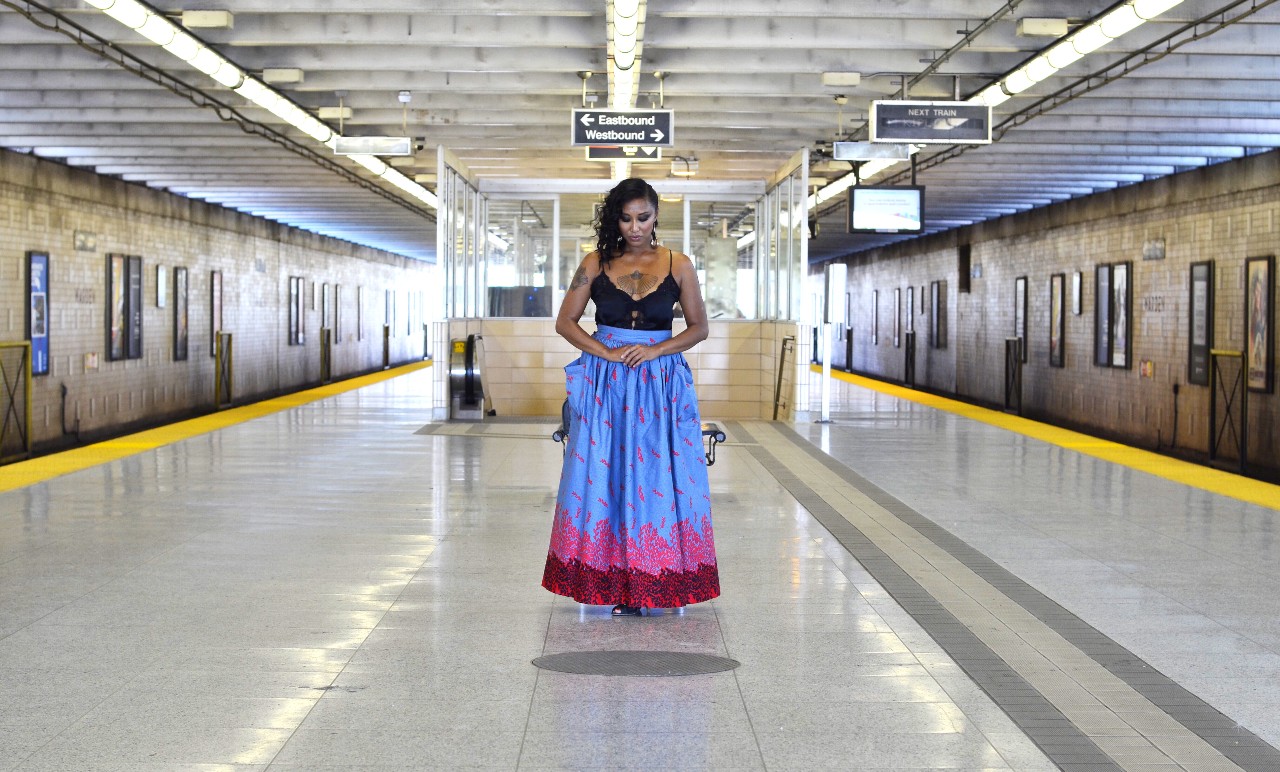Catherine Hernandez is the antithesis of the “quiet Asian” stereotype.
She is a Queer, Asian-Canadian writer and performer whose art is unapologetically loud.
“I love authoring into being worlds where queer Filipinx are loved by their parents; where QTBIPOC folks demand their right to live and love; where new systems of being in communion with one another are considered and created,” she said.
The Toronto-based author’s latest novel, Crosshairs, does just that, delving into the rights of the QTBIPOC community. Set in the near-future, the story follows an uprising of marginalized voices against an oppressive regime that forces communities of colour, the disabled, and the LGBTQ+ into labour camps in a dystopian Toronto.
Canada is frequently painted as a picture-perfect, inclusive society, especially when compared to their neighbours south of the border. In reality, the country still deals with systemic racism, one example being the killing of innocent Black and Indigenous lives at the hands of law enforcement. Hernandez’s goal with Crosshairs is to bring awareness to these imperfections.
“My aim was to reveal the ugly truths of this nation and to offer a play by play of what can happen if we do not ally with marginalized communities and what can happen when we truly embody allyship,” she said.
Her art spans novels, plays, and now film with a movie-adaptation of her award-winning novel Scarborough set to be released in 2021.
Read on to find out how the Pulse Nightclub massacre inspired Crosshairs and how she found her voice as a writer.

On who nurtured her love for storytelling
My mother, Cecille Estioko Hernandez, was a pioneer of Filipinx folk arts education here in Canada. Through her, I learned that sharing our community’s stories was important to our survival. If we continued to know our roots, we would have a sense of presence. If we continued to be in community with others, we would have a sense of belonging.
On how her experience as a Queer, Asian-Canadian woman influences her work
My persona in the arts world challenges the stereotype of a quiet, submissive, selfless Asian woman. I am proud to have put my self-care, my craft as a writer and the safety of my family first. I want my daughter to learn by example that when you put your own heart first, you are a better mother and partner. The work itself is just as unapologetic.
On the ups and downs of getting her work out there
Finding my voice was a major challenge for me. When I started out, I thought that perhaps beauty and fashion writing was the way to go. I would pitch these vapid stories to big magazines about lipsticks and hair care when that wasn’t what I actually wanted to say. When Buddies In Bad Times Theatre asked me to write regularly for their blog and told me I could write whatever the hell I wanted, that’s when my musings went viral. Next thing I know is, I have a critically acclaimed book and one of those magazines I used to pitch to, FLARE, is featuring me in their annual How I Made It series. This proved to me that your authenticity as a writer can move mountains.
“My persona in the arts world challenges the stereotype of a quiet, submissive, selfless Asian woman.”
On what inspired Crosshairs and the importance of setting it in Toronto
I was inspired by the Pulse Nightclub massacre where 49 people from the QTBIPOC community were murdered. Many folks from the queer/trans community began asking ourselves if we needed to buy guns and learn how to defend ourselves with the rise of violence against othered members of society. The novel was born out of the question, “What is the price of fighting back? And what is the price of being passive?” The book had to take place in Canada because our country is very talented at marketing itself as a loving, welcoming country when in fact it has been staging a genocidal campaign against the Indigenous people of Turtle Island and our mining efforts in countries around the world have displaced countless communities.


On how her novel Scarborough became a film
I was approached by a couple of producers asking to option the novel. I was concerned because I wanted my community here in Scarborough to be treated respectfully, and I knew people outside of here may depict our area in trauma pornographic ways. I contacted my good friends and colleagues at Compy Films, Shasha Nakhai and Rich Williamson, who were Oscar-shortlisted documentary filmmakers. I asked them, “What if I authored the script and you shot it like a documentary? Is that possible?” They enthusiastically took on the project and we immediately received support from the Reel Asian Film Festival and Telefilm Canada. It was an incredible ride with the cast and crew for an entire year shooting in various locations within and outside of Scarborough, trying to depict a community that refuses to give up.
On the importance of telling underrepresented stories
Representation means more than checking boxes to me. It means the chance for people outside my community to learn our stories and for us to have a chance at safety.
Like this post? Follow The RepresentASIAN Project on Instagram, TikTok and YouTube to keep updated on the latest content.












